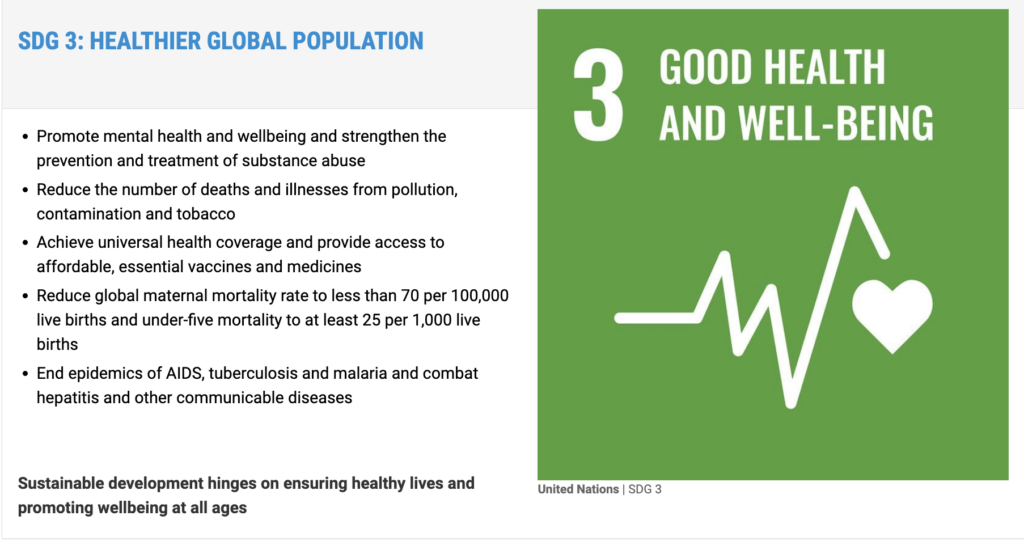At least one in eight people on Earth are living with obesity, the World Health Organization (WHO) said on Friday, citing a newly released global medical study.
That’s one billion people who lived with the disease in 2022, a number that has doubled among adults and quadrupled among five to 19-year-olds since 1990, according to data from the study, published in The Lancet, a renowned United Kingdom-based medical journal.
“This new study highlights the importance of preventing and managing obesity from early life to adulthood through diet, physical activity and adequate care, as needed,” said Tedros Adhanom Ghebreyesus, Director-General of WHO, which contributed to the study.
Global targets to curb obesity
A complex chronic disease, obesity has become a crisis, unfolding in epidemic proportions that reflect a stark rise over the past few decades.
While the causes are well understood, as are the evidence-based interventions needed to contain the crisis, the problem is that they are not implemented, according to the UN health agency.
“Getting back on track to meet the global targets for curbing obesity will take the work of governments and communities, supported by evidence-based policies from WHO and national public health agencies,” the UN health chief said.
It also requires the cooperation of the private sector, which must be accountable for the health impacts of their products, he added.
The study’s data also showed that 43 per cent of adults were overweight in 2022.
Deadly consequences
In the Europe, overweight and obesity are among the leading causes of death and disability, with estimates suggesting they cause more than 1.2 million deaths annually, according to WHO’s regional office.
Obesity increases the risk for many noncommunicable diseases, including cardiovascular diseases, type 2 diabetes and chronic respiratory diseases. Overweight people and those living with obesity have been disproportionately affected by the consequences of the COVID-19 pandemic, often experiencing more severe disease and other complications, the UN health agency said.
It is considered a cause of at least 13 different types of cancer, likely to be directly responsible for at least 200,000 new cancer cases annually across Europe, according to WHO.
“This new study highlights the importance of preventing and managing obesity from early life to adulthood through diet, physical activity and adequate care, as needed,” said Tedros Adhanom Ghebreyesus, Director-General of WHO, which contributed to the study.
Global targets to curb obesity
A complex chronic disease, obesity has become a crisis, unfolding in epidemic proportions that reflect a stark rise over the past few decades.
While the causes are well understood, as are the evidence-based interventions needed to contain the crisis, the problem is that they are not implemented, according to the UN health agency.
“Getting back on track to meet the global targets for curbing obesity will take the work of governments and communities, supported by evidence-based policies from WHO and national public health agencies,” the UN health chief said.
It also requires the cooperation of the private sector, which must be accountable for the health impacts of their products, he added.
The study’s data also showed that 43 per cent of adults were overweight in 2022.
Deadly consequences
In the Europe, overweight and obesity are among the leading causes of death and disability, with estimates suggesting they cause more than 1.2 million deaths annually, according to WHO’s regional office.
Obesity increases the risk for many noncommunicable diseases, including cardiovascular diseases, type 2 diabetes and chronic respiratory diseases. Overweight people and those living with obesity have been disproportionately affected by the consequences of the COVID-19 pandemic, often experiencing more severe disease and other complications, the UN health agency said.
It is considered a cause of at least 13 different types of cancer, likely to be directly responsible for at least 200,000 new cancer cases annually across Europe, according to WHO.

Undernutrition challenges
Malnutrition, in all its forms, includes obesity, inadequate vitamins or minerals and being overweight. It also includes undernutrition, which covers wasting, stunting and being underweight (or thinness) and is responsible for half of the deaths of children under five.
The study showed that even though the rates of undernutrition have dropped, it is still a public health challenge in many places, particularly in Southeast Asia and sub-Saharan Africa.
Countries with the highest combined rates of underweight, or thinness, and obesity in 2022 were island nations in the Pacific and the Caribbean and those in the Middle East and North Africa.
WHO’s acceleration plan
At the World Health Assembly in 2022, Member States adopted the WHO acceleration plan to stop obesity, which supports country-level action through 2030.
To date, 31 governments are now leading the way to curb the obesity epidemic by implementing the plan.
Some of the ways they are doing that include such core interventions as breastfeeding promotion and regulations on the harmful marketing of food and beverages to children.
Healthy diets for all

One of the co-authors of the study, Dr. Francesco Branca, Director of WHO’s Nutrition and Food Safety Department, said there are “significant challenges” in implementing policies that aim to ensure affordable access to healthy diets for all and create environments conducive to physical activity and overall healthy lifestyles.
“Countries should also ensure that health systems integrate the prevention and management of obesity into the basic package of services,” he said.
Addressing undernutrition requires action in the agriculture, social protection and health sectors to reduce food insecurity, improve access to clean water and sanitation and ensure universal access to essential nutrition interventions, according to the UN health agency.
The new study used data from 200 countries and territories, including 3,663 population-based studies with 222 million participants. WHO contributed to the data collection and analysis of the study and disseminated the full dataset through its Global Health Observatory.






